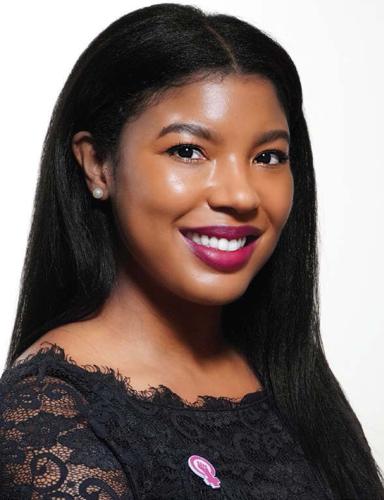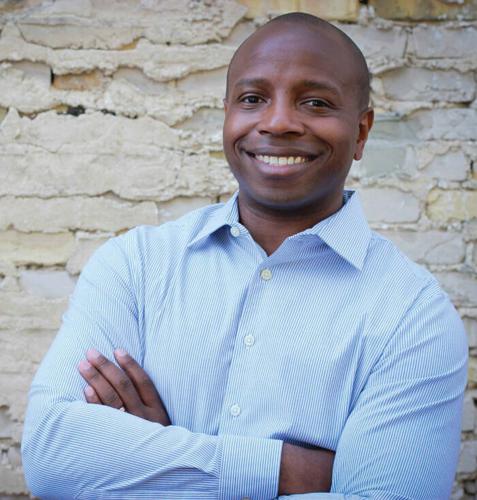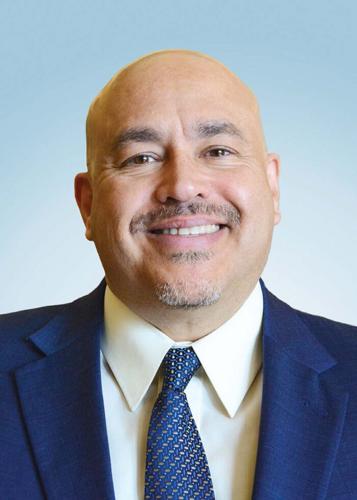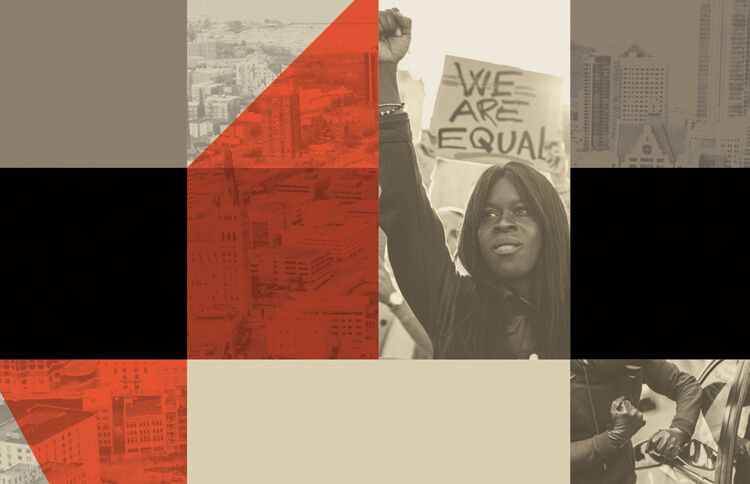
Like most cities across America, metropolitan Milwaukee has a number of issues that seem to persist, despite repeated efforts to address them.
For example, homicides by firearms and nonfatal shootings fell steadily from 2015 through 2019, but the number of gunshot victims has been rising at an alarming rate from 2020 to the present. Since 2021, many other types of crimes — including robbery, aggravated assault, burglary and theft — have been steadily dropping.
Crime is just one of Milwaukee’s tenacious challenges. What will it take to make meaningful progress in addressing the issues that are so difficult to answer? MKE Lifestyle asked some of area’s top leaders what they believe are the most pressing problems facing the community right now and how to address the barriers to resolving them.

MILWAUKEE MAYOR CAVALIER JOHNSON
What do you see as the most pressing problem facing the Milwaukee area right now?
Without question, the biggest challenge Milwaukee faces is public safety. Reckless driving, thefts, and gun violence are each a part of the problem. We’re making progress, as evidenced by the crime numbers, but that’s little solace to someone who just had her car broken into or someone whose home insurance premiums are rising. My aim is to drive crime down, substantially reducing fear and making sure jobs and investment are not moving away because of crime.
What is the primary barrier to solving that issue?
For too long, we’ve relied solely on the police to reduce crime. Yes, the police are important, but they alone cannot make Milwaukee safer.
My Office of Violence Prevention supports public safety through intervention and outreach. In fact, I’ve asked every department in my administration to identify what they’ll do to improve safety. Everyone needs to play a role — parents, neighbors, teachers, preachers, mentors. No one can stand on the sidelines as we work to reduce crime.
Who can remove that barrier?
I’m raising my voice to ask everyone to get involved. And, ultimately, the greatest level of public safety will be achieved when everyone answers the call.

MILWAUKEE POLICE CHIEF JEFFREY NORMAN
What is the most pressing problem facing the Milwaukee area right now?
Public safety, by far. One of the things you can see is firearms are at the center of a number of issues. There’s also reckless driving, carjacking, car break-ins. While we may have made some gains under this administration, we still have a lot of work to do. We need to use the partnerships out there, use the business community, law enforcement, residents … we’re seeing some of the benefits of these great partnerships.
What is the primary barrier to solving that issue?
Our challenge is trust. We have to be intentional in building more and more trust in our community. We always talk about partnerships. I believe it’s a strong suit that we all take ownership. I’ve always had the tagline that “We’re better together,” and I really mean that. We all have a responsibility in regards to public safety.
Who can remove that barrier?
I always say, “Just do something.” The Milwaukee Police Department hasn’t taken away ownership — we’re a critical component of being the tip of spear in public safety. We’re driven by information, cooperation and those who understand that [it’s important] to do something in the community to engage our youth, and to do more work in the community for those less fortunate. I’m honest enough to know that we can’t do it alone.

MARCELIA NICHOLSON, SUPERVISOR, 5TH DISTRICT MILWAUKEE COUNTY BOARD CHAIRWOMAN
What is the most pressing problem facing Milwaukee right now?
One of the biggest challenges facing Milwaukee is the issue of racial and economic inequality. Milwaukee is one of the most segregated cities in the U.S., with significant disparities in employment, education and healthcare outcomes between White and Black residents. These disparities are rooted in decades of systemic racism and discriminatory policies and addressing them will require a sustained and comprehensive effort from government, business, and community leaders.
What is the primary barrier to solving that issue?
Some leaders are hesitant to take bold action that might upset the status quo or challenge powerful interests, and some may be more focused on short-term gains than on long-term investments in the city’s future. Additionally, there may be a lack of understanding or awareness among some segments of the population about the severity and urgency of the problem.
Who can remove that barrier?
To remove the barrier of political reluctance, it will be important for leaders in Milwaukee to build broad-based coalitions and mobilize public support for bold action to address inequality. This may involve engaging with community groups, organizing public forums and listening sessions, and working with media outlets to raise awareness about the issues. It will also be important to hold fellow elected officials and business leaders accountable for acting, and to provide them with the resources and support they need to do so.
Ultimately, removing the barrier will require a sustained and collaborative effort from all stakeholders in Milwaukee. Milwaukee County will continue to invest in public spaces, while simultaneously uplifting minority- and women-owned businesses as we continue to lead in the work of racial equality. Leaders should prioritize outreach to groups that are most impacted by inequality, including Black and Brown residents, low-income families, and individuals with disabilities. By centering the voices of those most affected, leaders can better understand the issues and develop more effective strategies for addressing them.

ALDERMAN JOSE PEREZ, MILWAUKEE COMMON COUNCIL PRESIDENT
What is the most pressing problem facing Milwaukee right now?
Without question, it has to be the prevalence of crime in our communities. Homicides, non-fatal shootings, and reckless behavior with firearms are at levels we’ve not seen in some time. These issues and the well-publicized increases in reckless driving are destabilizing our neighborhoods.
What is the primary barrier to solving that issue?
There are many barriers we need to overcome. It starts with individuals in our community taking responsibility for resolving conflicts without guns and violence. At the same time, the government must also establish firm consequences for individuals that disregard that responsibility. Those of us in public offices must ensure we’re adequately funding prevention mechanisms with a proven track record of success that can be deployed throughout the community.
Who can remove that barrier?
For consequences to feel real for individuals, the court system needs to do its part to ensure justice is served. It must be made clear that if you break the law, you won't just be put into a queue for a possible judgment at some point in the future. Instead, you will face the consequences appropriate for your actions.
Through our partners in the State Legislature, the City is currently working on a solution to address our looming fiscal crisis. If we can accomplish this, the City's financial strain will be reduced, and we will be able to ensure our prevention and enforcement strategies are funded and doing their part.

KARI SOUTHERN, DEPUTY DIRECTOR, COMMUNITY ADVOCATES PUBLIC POLICY INSTITUTE
What is the most pressing problem facing the Milwaukee area right now?
Inequality. So many of the issues we see and work on within Community Advocates Public Policy Institute stem from inequality. The harms connected to inequality are pervasive because they have been written into policies, systems, and programs going back decades.
What is the primary barrier to solving that issue?
Because it’s so far-reaching, there is no one easy answer. But serious investments in upstream policies will be far more effective than just responding to crises or placing a band-aid on a problem.
Who can remove that barrier?
Everyone has a stake in this. Part of it is building awareness, and a large part is humility and not backing down because it may be complicated or uncomfortable. To truly create a healthy and more equitable Milwaukee, we need to use a community-led approach that focuses on issues and solutions that lift up the communities that bear the burden of inequality. MKE






